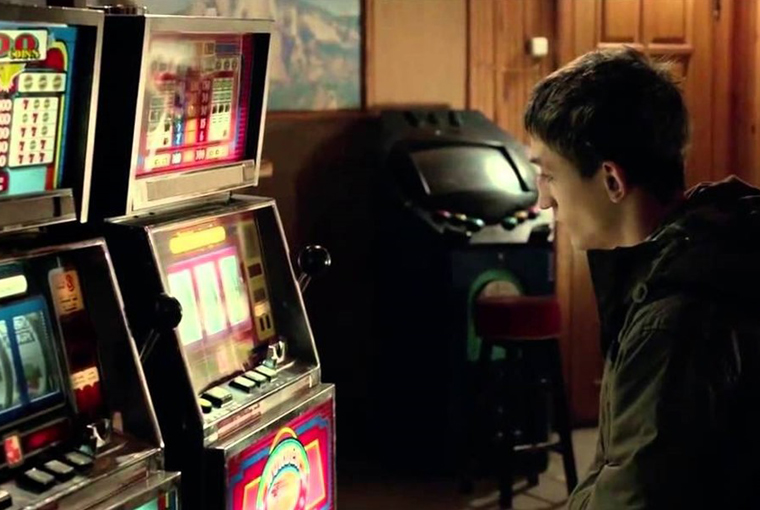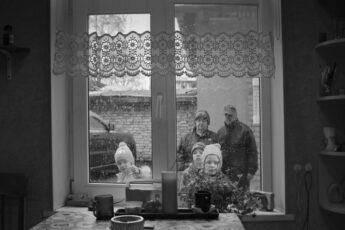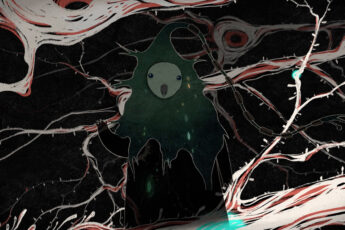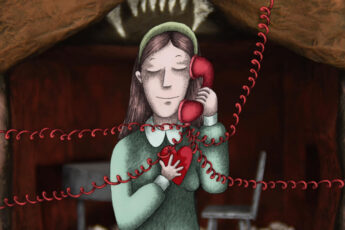
In the opening scene of Modris, the debut feature of Latvian filmmaker Juris Kursietis, a young couple try their luck at the toy claw machine of a suburban mall. For a film that’ll go on to address the pitfalls of youth gambling, the innocuous image is well-chosen, serving as a metaphor both for the way youngsters tend to underestimate the seriousness of addiction, and for the evanescent spurts of euphoria that are inextricably linked to hazard games. Somewhat unlikely, the couple wins, by which Kursietis seems to remind us that luck, however rare, is real, and that the fallacy gambling addicts fall victim to is not a category mistake, but a cost-benefit calculation that doesn’t add up. “I told you that you would win the fish toy,” Modris (Kristers Pikša) tells his girlfriend (Inese Pudza), invoking the popular and innocent-seeming notion of prescience that neither the viewer nor Modris’ girlfriend suspect for the gambling symptom it really is. Sure enough, the opening scene ends on a wide shot of the two leaving the mall’s parking lot, suggesting a shift in perspective away from the casual fun of arcade gaming.
Modris spends his evenings at a shabby bar frequented by alcoholics and fellow gambling addicts, though he doesn’t really communicate either with them, or with the caustic barman who’s smart enough not to lend Modris the two lats (three euros) he’s able to bum off everyone else: anyone who’s spent a bit of time near slot machines as an observer, rather than as a gamer, knows that the money flow is for the most part a one-way affair. The question of what makes them so immersive is not one that Kursietis is interested in. Not even his DP Bogumil Godfrejów bothers to contemplate the kitschy aesthetics of the device, although his radically handheld aesthetics would give plenty of room to do so. Both facts are symptomatic of the film’s third-person angle on Modris: Kursietis is unable or unwilling to adopt Modris’ perspective on things, giving preference to a detached observational point of view.
Modris’ mother (Rēzija Kalniņa), who has the self-righteous coldness of Antoine Doinel’s mom (400 Blows) and shares Modris’ own lethargy, practices an impulsive style of education. Communicating in short, telegram-like sentences, she seems to have no understanding for her son’s problems, instead auguring that he will end up in prison “just like your father”. Modris is right to ask if she even cares. But does he? When he runs out of money after a night of gambling, Modris takes her heater to a pawn shop only to spend the money in another gambling session. Unsurprisingly, it doesn’t take long for his mom to notice (it’s cold in Latvia). Confronted head-on by his mother with the disappearance of the heater, Modris has no other choice but to say the truth. She in turn has no other choice but to react by calling the police. Or so she says. The police officers are visibly startled by the situation (“the perpetrator is still in your apartment?”) but eventually take Modris into custody.
Initially, it seems unlikely that pawning his mother’s heater should cause him too much trouble, but Modris carries his whatever-attitude into the courtroom, which apparently gives Latvian judges the judicial freedom to put him on probation. Whatever the accuracy of these legal details (and the psychological plausibility of Modris’ behavior), Modris’ luck is running out. The first first formal consequence of Modris’ addiction, from there on, both the narrative and Modris’ life seem to develop with necessity.
It is here that Modris’ bleak temperament becomes problematic, as the viewer struggles to emotionally keep up with the protagonist’s growing plight. Modris meets his troubles – be it outfalls with the law, his being beaten up, even arguments with his girlfriend or mother – with such indifference, that it is hard to say whether there is anything driving him other than his temporary inclinations. Take a late scene in which Modris leaves the club where he’s celebrating his birthday with his girlfriend. Modris steps out on the street, briefly wonders into an over 30’s party next door, walks back out, tries calling his dad, and finally follows a random mass of partygoers who pass by. In the end, his erratic behavior culminates in him being back to playing the slot machine. One needs a lot of emotional stock to be able to care about someone as nontransparent as Modris.
Some critics laud the fact that Kursietis chose an apathetic protagonist. Thus Peter Debruge thinks it is a sign of skill and innovation. “Audiences crave characters with ambition,” he elaborates, “and Modris […] doesn’t yet know what he wants from life […]”1. Though I think that Debruge is both right to characterize Modris as apathetic and to take this to be unusual, his last point should be put more dramatically. It’s not just that Modris “doesn’t yet know what he wants from life,” which is a feature common to young people. It’s not even clear if Modris wants to want something from life. This is what essentially alienates the viewer from the protagonist: not his being lost, but his not even seeming to care. A late narrative strand, in which we’re told that Modris is searching for his lost father, is a belated attempt to lend structure and purpose to his character. Ironically, like the addiction through which he previously introduced Modris, an interest in one’s father is not something that sets one apart from others. Who is Modris? Shouldn’t Kursietis seek the answer through what lies beyond his addiction and his having grown up without a father?
The sudden shift from desperate troublemaking to lost youth recalls Francois Truffaut’s debut 400 Blows, in which 14-year-old protagonist Antoine Doinel is similarly transferred to the police by his fed-up parents. Truffaut’s debut is indeed illustrative when it comes to retracing the aesthetic origins of Modris, yet it is much more important for understanding what got lost on the way. Crucially, it tells us just why “audiences crave characters with ambition”, and what we lose by ignoring that desire. Of course, neither Antoine Doinel nor Modris are responsible for their criminal careers. Growing up in an oppressive environment in which family and state neglect troubled children, their fate is in the hands of others. Thus neither Antoine Doinel, who knocks and roars, nor Modris, who does neither, can avert their misfortune. Yet for Truffaut, who believed in the freedom of his characters, and of man, it makes a difference what your attitude towards your fate is, at the very least because it is constitutive of who you are – even in those tragic cases where it is sealed by others. If Kursietis wanted us to identify with his character for ending up in prison, he should at least have tried to convince us that Modris has a problem with that. How telling that the film closes with Modris looking through prison bars, whereas 400 Blows ends on the famous and symbolic freeze frame on Antoine Doinel upon his escape and outside of the confines of the prison. In Kursietis’ universe, there is no point of escaping because you’ll get caught anyway. In Truffaut’s world the tragedy of getting caught can’t possibly annul the autonomy that lies within us. That is if we want to be free.




Leave a Comment